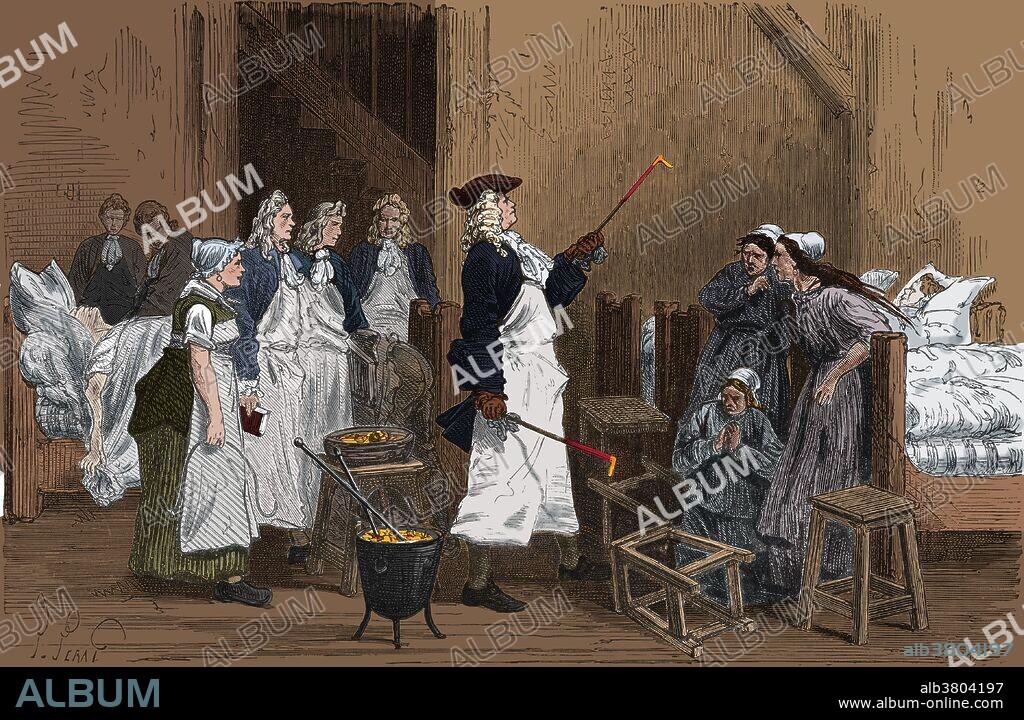alb3804197
Herman Boerhaave Treating Hysteria Patient, 1710

|
Ajouter à une autre Lightbox |
|
Ajouter à une autre Lightbox |



Avez-vous déjà un compte? S'identifier
Vous n'avez pas de compte ? S'inscrire
Acheter cette image

Titre:
Herman Boerhaave Treating Hysteria Patient, 1710
Légende:
Voir la traduction automatique
Boerhaave treating a patient with hysteria at Leiden hospital in 1710. He believed that people suffering from hysteria could be calmed by making them frightened, and so began threatening them with red-hot pokers. Herman Boerhaave (December 31, 1668-September 23, 1738) was a Dutch botanist, chemist, humanist and physician. He is regarded as the founder of clinical teaching and of the modern academic hospital. His reputation increased the fame of the University of Leiden, as a school of medicine. In 1714, when he was appointed rector of the university and in this capacity, he introduced the modern system of clinical instruction. His 1724 textbook, Elementa chemiae, was an outgrowth of his lectures, in which he outlined influential theories on heat, fire, and expansion of bodies. The publication of his textbook is said to mark the start of the modern concept of chemistry. He is considered one of the pioneers in physical chemistry, for introducing quantitative methods into the measure of temperature and mass and for carrying out some of the first calorimetric research. In 1728 he was elected into the French Academy of Sciences, and in 1730 into the Royal Society of London. In 1729 declining health obliged him to resign the chairs of chemistry and botany; and he died, after a lingering and painful illness in 1738 at the age of 69. Engraving from "Vies des savants illustres" by Louis Figuier.
Crédit:
Album / Science Source
Autorisations:
Modèle: Non - Propriété: Non
Questions sur les droits?
Questions sur les droits?
Taille de l'image:
4650 x 3028 px | 40.3 MB
Taille d'impression:
39.4 x 25.6 cm | 15.5 x 10.1 in (300 dpi)
Mots clés:
18 18E 18EME XVIII XVIIIE XVIIIEME SIECLE • 18E SIECLE • 18EME S • BOTANIQUE • CÉLÈBRE • CELEBRITE • CHIMIE • CHIMISTE • DIX-HUITIÈME SIÈCLE • EUROPÉEN • HOMME • HYSTERIE • ILLUSTRATION • PERSONNAGES • PERSONNALITÉS • PERSONNE • PSYCHOLOGIE • SCIENCE: CHIMIE • SOIGNER • XVIIIE SIECLE
 Pinterest
Pinterest Twitter
Twitter Facebook
Facebook Copier le lien
Copier le lien Email
Email
